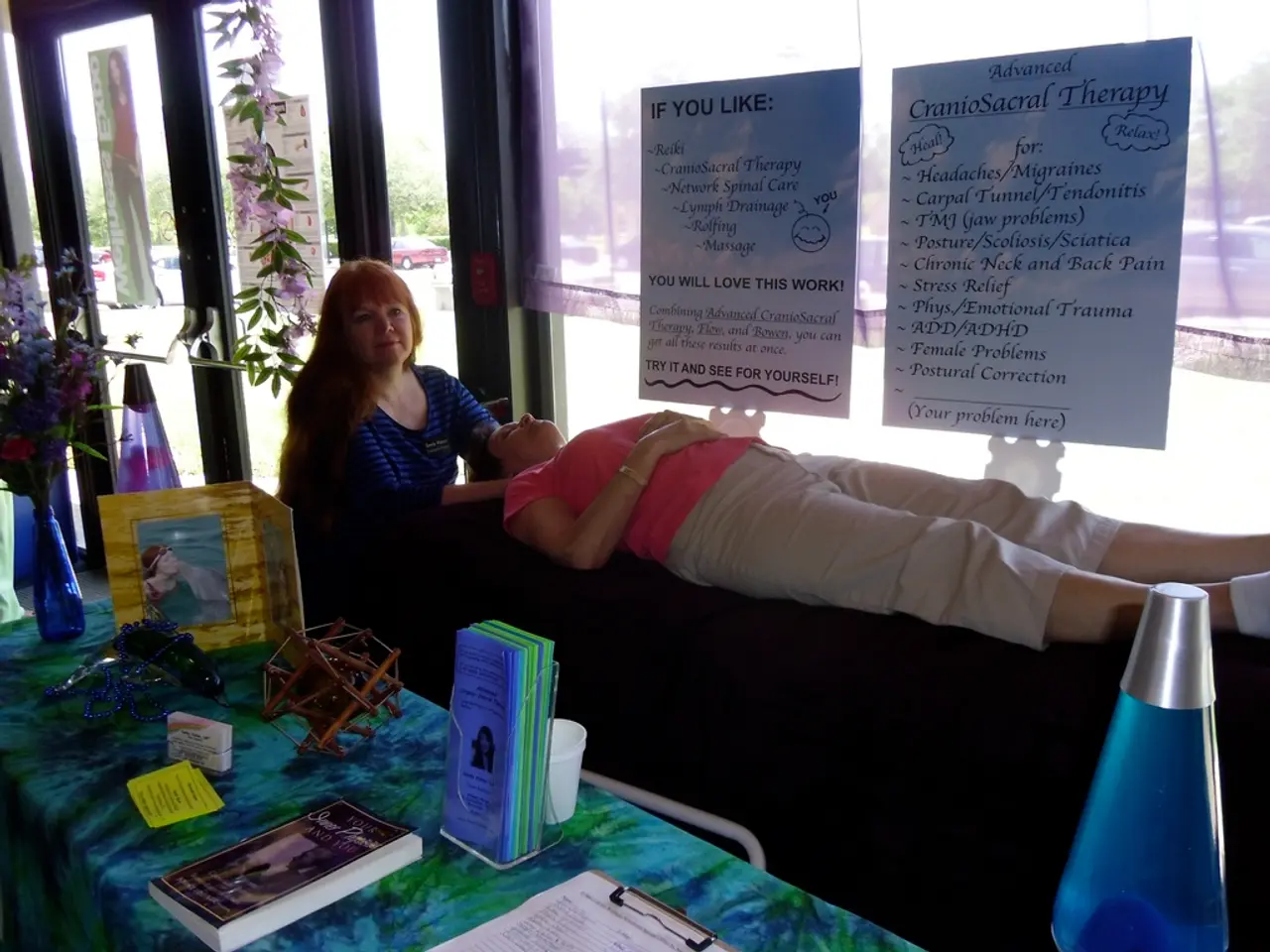Exploring Moral Distress: A Look into Moral Injury
Revd Dr Brian Powers, a former US Air Force Special Operations Weather Team officer, is working to shed light on moral injury (MI), an experience that arises from the violation of deeply held moral values. Having experienced MI himself during his service in Iraq and Afghanistan, Powers is now leading research on the subject, focusing on retired military chaplains [1].
Moral injury can occur in various settings, including military, healthcare, emergency services, law enforcement, and more. In the military, it often stems from witnessing or participating in acts that transgress moral values, frequently involving betrayal by authorities or peers [1]. During the COVID-19 pandemic, healthcare workers have faced moral injury due to ethically challenging care decisions and resource shortages [1]. Emergency responders, such as police, firefighters, and ambulance staff, experience moral injury through loss of trust in self, others, or authority figures during traumatic, high-pressure situations [4].
Identifying moral injury is crucial, as key signs include intense guilt, shame, moral disorientation, spiritual distress, alienation from society, and sometimes anger or a sense of betrayal toward leaders or institutions [1][2][4]. Unlike Post-traumatic Stress Disorder (PTSD), moral injury centers on moral and ethical conflict rather than fear, often leading to profound psychological, social, cultural, and spiritual suffering [1][3].
Treatment approaches vary by context. For military personnel, psychotherapy often focuses on processing guilt/shame, restoring moral beliefs, and addressing betrayal trauma. Spiritual or theological approaches are also used, recognizing moral injury as "souls in anguish" rather than just a psychological disorder [1][3]. Healthcare and emergency responders require trauma-informed care that integrates psychological and spiritual healing [2][4]. Specialized clinics offer safe spaces for processing complex emotions, emphasizing meaning reclamation and identity rebuilding [2][4].
General psychotherapy strategies include trauma-focused psychotherapy, EMDR (Eye Movement Desensitization and Reprocessing), narrative therapy to reshape moral narratives, and systemic or relational interventions tailored to the individual's moral injury domain [3][4]. Practitioners should avoid conflating moral injury with PTSD or other disorders, respect the spiritual dimension of distress, and tailor approaches to individual moral frameworks and cultural contexts [3].
Revd Dr Powers' work is focused in the Department of Theology and Religion and extends to exploring connections between ritual concepts of penance, lament, and recovery from perceived moral failure. He is also working on a second book exploring the power of resurrection hope and divine justice within the Christian tradition.
The project involving retired military chaplains is currently in consideration for funding. Its aim is to determine if the duty to attend to the moral trauma of military members may be morally injurious to retired military chaplains, and if their perception of divine forgiveness is impactful in recovery from moral injury [1].
On November 10th, there will be a launch Webinar titled "Trajectories of Moral Injury: Future Research, Tensions, and Cross-Cultural Collaborations". Revd Dr Powers will participate in the "Moral Costs of the War" event in Ukraine.
A greater understanding of moral injury can lead to better care for those who suffer from it, and can help national and societal conversations about cultural values and how they contribute to moral injury. For the general public, a greater understanding of moral injury and the moral traumas of war can collapse the distance between the political discourse around conflict and the experience of veterans, creating a more supportive environment for military members returning from conflict [1].
The International Centre for Moral Injury aims to serve as a hub linking researchers in different areas of Moral Injury research.
[1] Powers, B. D. (2021). Moral Injury: A Theological Analysis. Wipf and Stock Publishers. [2] Monima Wellness Center. (n.d.). Moral Injury. Retrieved from https://monimawellness.com/moral-injury/ [3] Litz, B. T., & Norris, F. H. (2009). Moral Injury and Moral Repair in War Veterans: A Preliminary Model and Intervention Strategy. Psychiatry, 72(3), 183-196. [4] Breuning, M. (2020). The Moral Injury of Police Officers: Understanding and Responding to the Unique Challenges of Law Enforcement. Springer Publishing Company. [5] Hruska, J. (2016). Moral Injury and the Humanitarian Worker: Understanding the Psychological Impact of Aid Work. Springer Publishing Company.
Science and healthcare-and-wellness sectors are increasingly recognizing the importance of mental health, with a growing focus on understanding and treating moral injury. Revd Dr Powers' research, specifically in the Department of Theology and Religion, explores the connections between moral injury, rituals of penance, lament, and recovery from perceived moral failings, which could provide valuable insights into therapies and treatments for this complex issue. This research could potentially benefit not only military personnel but also healthcare workers, emergency responders, and others who may experience moral injury in their respective fields.




